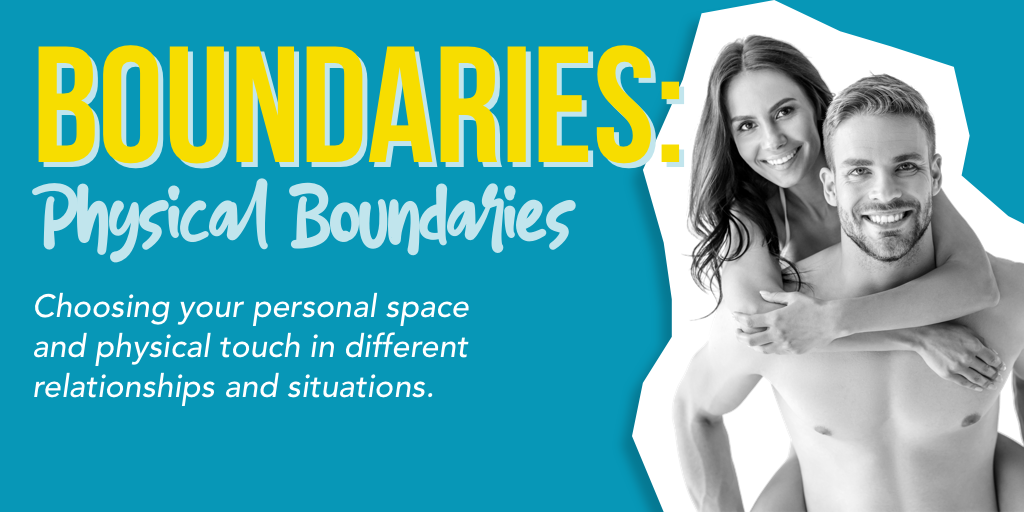This is the third in a series about boundaries. The six primary types of boundaries are:
- Physical Boundaries
- Intellectual Boundaries
- Emotional Boundaries
- Sexual Boundaries
- Material Boundaries
- Time Boundaries
For far, I’ve covered material and sexual boundaries. Today, I’m focusing in on Physical Boundaries: Personal Space and Physical Touch.
Which, of course, are related to sexual boundaries, but span much more than just sexual intimacy and interaction.
Healthy physical boundaries: an awareness of what works for you and what does not in various situations and types of relationships.
For example, do you verbally greet, hug or kiss your partner(s) when meeting? Or your friends? How do you prefer to be touched? How do you prefer to touch others?
Ask yourself these questions:
- Is touch welcome from strangers? If yes, are there specific greetings you prefer (high-five, shake hands, fist bump)?
- How much space do you prefer around yourself? Is this different with strangers versus friends or loved ones?
- Do you prefer to have your attention gotten before being touched?
- Do you like physical affection?
- Do you enjoy casual touch?
- Are there types of touch that are uncomfortable or triggering to you?
- Do you enjoy touching/being touched in public?
- Do you have touch sensitivities?
- Do you prefer specific textures over others?
- Are there times when you prefer to be touched? Or not touched?
- Do you enjoy light touches or strong touches?
- Are you ticklish? Where? Do you enjoy being tickled?
- What kinds of touch do you enjoy? Patting, gentle stroking (petting), rubbing, holding (hugs, hand holding, even corsets or restriction in rope), massage (deep tissue), arousing stroking.
- What areas of your body feel intimate to you, and are reserved for lovers or partners? Strangers? Here are a few: Hands, arms, shoulder, upper back, neck, head, chest, stomach, lower back, bottom, legs, knees, feet, breasts, genitals.
- Do your preferences change when any part of your body is covered in clothing?
- Do you have physical pain or issues that might limit touch?
- Do you have trauma that might limit touch?
- Are you comfortable withdrawing from physical touch?
- Do you have a prepared response to unwanted physical touch to use with strangers? Friends? Partners?
These are a place to start with yourself, and with others in conversation or negotiation as you build relationships.
The next writing will be on the topic of Emotional Boundaries.









